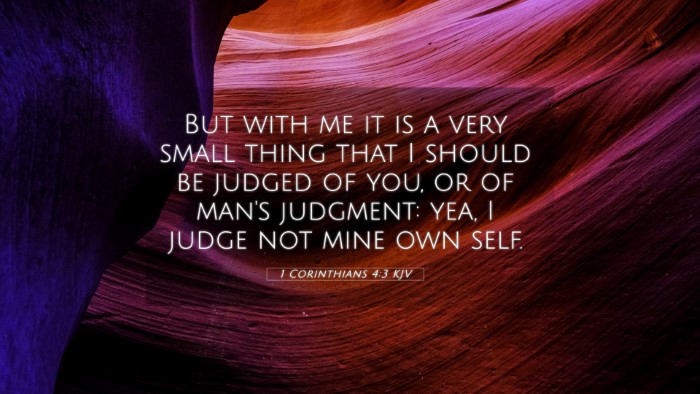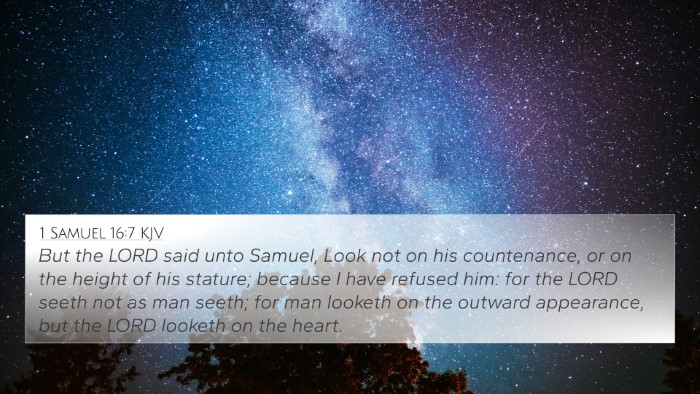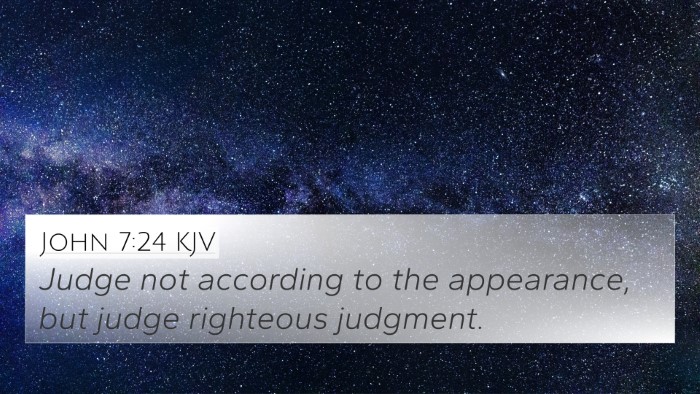Understanding 1 Corinthians 4:3
Bible Verse: 1 Corinthians 4:3 - "But with me it is a very small thing that I should be judged of you, or of man's judgment: yea, I judge not mine own self."
Summary of Meaning
This verse reflects the Apostle Paul's perspective on judgment and evaluation. He emphasizes that human judgment holds little significance when compared to God's judgment. Paul indicates that he is not concerned with the opinions of others or even his own self-assessment, showcasing a deep reliance on God’s judgment above all else.
Insights from Public Domain Commentaries
-
Matthew Henry's Commentary:
Matthew Henry points out that Paul asserts his indifference towards the judgments of the Corinthians and others. He explains that human assessments can often be flawed and biased. Henry emphasizes that true evaluation comes from God, who knows a person's heart and intentions.
-
Albert Barnes' Commentary:
Albert Barnes notes that Paul was likely facing criticism and judgment from both the Corinthians and others. He argues that Paul does not seek validation from men but stands firm in his accountability to God. Barnes highlights that this verse teaches believers to focus less on human judgments and more on the integrity of their service to God.
-
Adam Clarke's Commentary:
Adam Clarke elaborates on the idea that Paul recognizes his limitations in self-judgment. He is aware that unless God reveals his heart, he cannot truly assess his worth or actions. Clarke encourages readers to seek God’s approval, rather than relying on the opinion of others, affirming that eternal judgment is far more significant.
Related Bible Cross-References
- Matthew 7:1-2: "Judge not, that ye be not judged..." - This passage reinforces the concept that judgment should be left to God, echoing Paul's sentiments in 1 Corinthians 4:3.
- Romans 14:10: "But why dost thou judge thy brother?..." - Paul continues his teaching on judgment, urging believers to focus on their relationship with God.
- 1 Samuel 16:7: "For the Lord seeth not as man seeth..." - This verse highlights God's ability to see beyond appearances, similar to Paul's assertion in 1 Corinthians 4:3.
- John 12:47: "And if any man hear my words, and believe not, I judge him not..." - This passage speaks to the authority of Christ in judgment, paralleling Paul's thoughts on human judgment.
- 2 Corinthians 5:10: "For we must all appear before the judgment seat of Christ..." - This illustrates the importance of God's judgment over human opinion.
- Philippians 1:16: "The one preach Christ of contention..." - Paul's focus on preaching Christ regardless of how he is judged shows his commitment, resonating with 1 Corinthians 4:3.
- Galatians 1:10: "For do I now persuade men, or God?..." - Paul emphasizes the importance of serving God over pleasing men, akin to his message in 1 Corinthians.
Thematic Bible Verse Connections
The themes present in 1 Corinthians 4:3 can be interconnected with the following broader scriptural themes:
- Divine Judgment vs. Human Judgment: The constant comparison between how humans assess and how God judges his creation.
- The Integrity of Service: How serving God authentically is more important than seeking validation from others.
- Self-Reflection and Accountability: The balance between self-assessment and the acknowledgment of God’s ultimate judgment.
Conclusion
In conclusion, 1 Corinthians 4:3 presents a profound truth concerning the nature of judgment. It encourages believers to assess their lives based on God's standards rather than the fluctuating opinions of society. By exploring cross-references and thematic connections, readers can deepen their understanding of this crucial aspect of faith.






